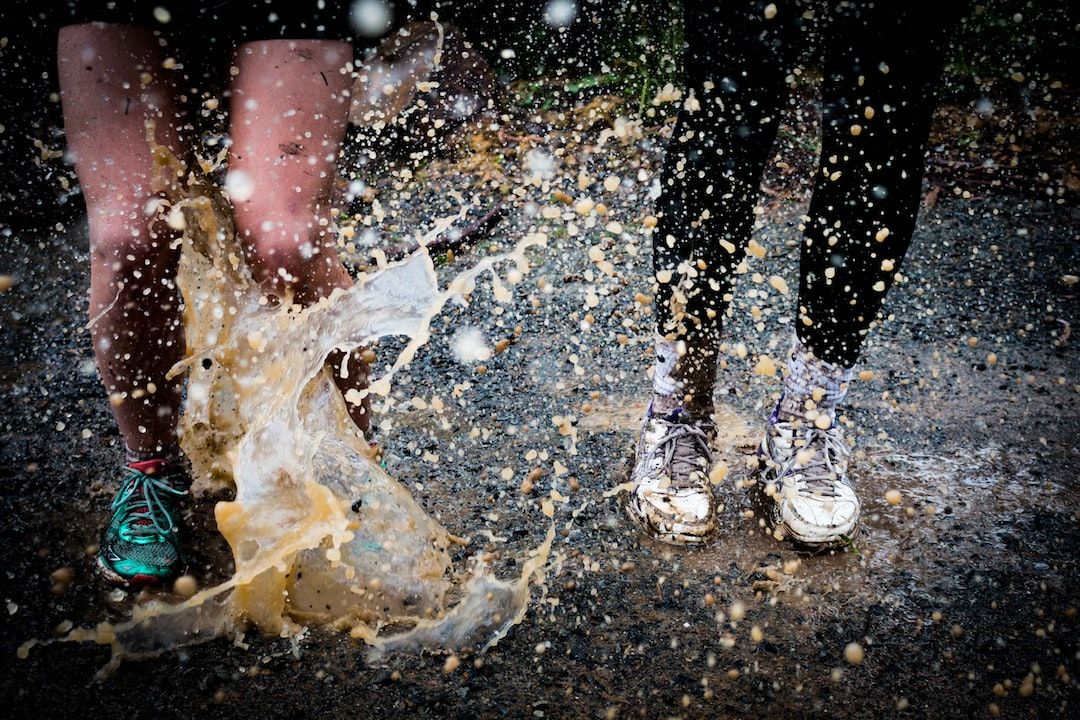
Blog
Stories from my personal journey learning about and delivering Nature-rooted programs across three different countries
The dangerous muddy puddle...
Caylin (Forest Schooled)

Empty space, drag to resize
Today's Forest School with the PRU was a session I will probably never forget. This is for both good and also very bad reasons... We had torrential downpour of rain through the night and into this morning, causing very wet conditions and significant flooding in the wood, to a scale we have not yet encountered in our several years working in this wood!
Many areas were under about 3 inches of water and wellies or waterproof shoes were essential even to just reach our base camp. And, as it is early March, it was cold too.
So about 1 hour prior to the children's scheduled arrival, we rang the school to let them know about the conditions and the necessity for proper clothing. When they arrived we discovered that one of the children was wearing trainers (not wellies) and most were in either jeans or sweat pants (definitely not outdoor trousers!). At least they all had coats...
At first, things were going fairly well. They were enjoying splashing in the puddles, playing with the water collecting on the tarpaulins and we had a nice big fire to help keep us warm. We ended up going exploring and found a great big puddle that was about knee deep. The children wanted to go in and we had a discussion about how deep it was, how the water level was higher than their wellie boots and that there was a significant risk they would get wet and cold. But we discussed that, with that knowledge, if they wanted to make the choice to go in, they could. And they did...
At the start, it was all very fun and playful. They were taking turns jumping in and splashing about. Their wellies were filling with water and their feet were getting wet but nobody seemed too bothered about it. Then Connor pushed Jake, who fell over into the deepest part of the puddle, getting completely soaked. And all of a sudden innocent puddle splashing became full blown mud wrestling.
My colleague, Rosie, and I stood there, internally struggling with what to do about it. It was all mostly in good jest – the boys were all willing participants in the activity, which could be described as rough and tumble play. But we could see they were getting very cold and were starting to shiver. We also knew these boys were being transported by taxi back to school and that a taxi driver may not allow the children into their vehicle in such a muddy state. Our dilemma was, do we try to stop the behaviour or do we just leave them to it?
Both Rosie and I began to feel the conditions were becoming unsafe due to the exposure to cold and the increasing physicality of the play. It was also time for the PRU to head back to school, so we attempted to stop it. But there was honestly nothing we could say that these boys would listen to and they carried on in spite of our efforts.
At the point where Connor and Henry's heads were nearly submerged underwater Rosie and I both shouted “Everybody Stop!!!” Over the next 10 minutes we struggled to get the boys back to base camp, as they did not want to leave the puddle.
By the time we got to the car park, they were all freezing cold, shivering and one boy was hysterically crying because he was so uncomfortable. The two taxis that had been called were waiting, but when they saw the muddy state of the children one of them refused to serve them and drove away. The other taxi driver was very compassionate and said he would drive half the group and then come back for the rest. We got as many of the wet clothes off the children as possible and put the coldest, most distressed individuals into the taxi first. Eventually the taxi returned and took the remaining children.
Today's experience brings up the question, if Forest School is about providing opportunities for participants to take appropriate risks and allowing them to assess, encounter and learn about hazards for themselves, did today's activity of playing in a puddle (a seemingly harmless activity) pose an inappropriate risk for children with behavioural difficulties and should we have prevented it?
On the one hand, seeing how distressed the children became at the end of the session makes me question whether perhaps it was an inappropriate level of risk for PRU children, who are unable to regulate their own behaviour to ensure the safety of themselves and others. On the other hand, I feel that if we had prevented these children from getting in the puddle, it would have been another rule added to the long list of things they are told not to do on a daily basis.
By experiencing rolling around in a muddy puddle and getting very very cold as a result, they have now learned that such an activity will cause them stress and they have also been taught methods of how to deal with this stress (by removing wet clothing (or wearing proper clothing in the first place!), putting on dry ones and finding a place to shelter and get warm).
They were given the freedom to choose whether to take the risk, a risk which gave them both pleasure and suffering. Hopefully this has taught them a very valuable life lesson: If you are willing to take the risk, you must be willing to suffer the consequences.
Perhaps if you had come across our group standing in the car park at the end of our session today, with 6 children all completely soaked, shivering with cold and crying, you would probably feel we had compromised both the physical and emotional wellbeing of these children. Perhaps you'd think we shouldn't have even considered sending these children out in such cold and wet weather.
However, before passing judgement, it is worth considering a quote by Tim Gill (2010) from Nothing Ventured... Balancing risks and benefits in the outdoors, “A mindset that is solely focused on safety does children and young people no favours. Far from keeping them safe from harm, it can deny them the very experiences that help them to learn how to handle the challenges that life may throw at them" (pg. 1).
References:
Gill, T. (2010) Nothing Ventured... Balancing risks and benefits in the outdoors, English Outdoor Council.
More Posts
WANT TO GET FOREST SCHOOLED TOO?
Subscribe to my email letters, something special from me to you so we can learn together. Each one is filled with heart-felt stories from the forest, resources you may find useful, and things that hopefully bring a smile too.
Thank you!
© by FOREST SCHOOLED
